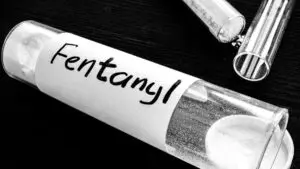When it comes to mental health and substance use disorders, many people face the unique challenge of dealing with both simultaneously. This is known as a “dual diagnosis” or “co-occurring disorder.” For someone with a dual diagnosis, treating only one condition often falls short; true recovery requires an approach that addresses both mental health and substance use issues together. Dual diagnosis treatment is designed specifically for this purpose and plays a vital role in achieving comprehensive, long-term recovery.
What is Dual Diagnosis?
Dual diagnosis refers to the presence of both a mental health disorder and a substance use disorder in the same individual. Common combinations include conditions like depression and alcohol use disorder, anxiety and opioid addiction, or bipolar disorder and stimulant abuse. The interactions between mental health and substance use disorders can be complex, as each condition can fuel or worsen the other. For example, someone might use substances to self-medicate for anxiety, leading to dependency, which in turn can heighten anxiety or depression over time.
Why Is Dual Diagnosis Treatment Important?
Dual diagnosis treatment approaches both mental health and substance use disorders as interconnected issues, rather than isolating one from the other. Traditional treatment programs may focus solely on addiction or solely on mental health, which can overlook underlying issues that could hinder recovery. Here’s why dual diagnosis treatment is so essential:
1. Integrated Care and Whole-Person Treatment
In dual diagnosis treatment, mental health and addiction professionals collaborate to create a comprehensive plan. This allows for the root causes of both issues to be addressed through an integrated approach, which helps the individual build a stronger, more holistic foundation for recovery.
2. Improved Long-Term Outcomes
Research shows that treating both mental health and substance use disorders together leads to better outcomes than treating either alone. When both issues are addressed, individuals are less likely to relapse and more likely to maintain stability over time.
3. Reduces Stigma and Supports a Healing Environment
Dual diagnosis treatment provides a supportive environment where individuals are understood and accepted without judgment. By addressing both mental health and addiction issues openly, it fosters an atmosphere that reduces stigma and encourages healing.
4. Tailored, Evidence-Based Therapies
Programs designed for dual diagnosis treatment use evidence-based therapies tailored to the individual’s needs. These therapies often include a mix of cognitive-behavioral therapy (CBT), medication management, peer support, and other tools that specifically target the interactions between mental health and substance use.
What to Expect in a Dual Diagnosis Program
Dual diagnosis treatment programs typically offer a blend of medical, psychological, and social support services. Common components include:• Assessment and Diagnosis – A comprehensive evaluation by mental health and addiction specialists to understand the nature of both conditions.
• Medication Management – Many individuals benefit from medications that help stabilize mood or reduce cravings, which can be important alongside therapy.
• Therapeutic Support – CBT, dialectical behavior therapy (DBT), trauma-informed care, and other therapies are commonly used to support emotional health while addressing addiction.
• Group and Family Therapy – Support systems play a critical role in recovery. Family and group therapy sessions help individuals rebuild trust and strengthen relationships.
Conclusion: Choosing the Path to Recovery
For those facing a dual diagnosis, getting the right help can be transformative. Dual diagnosis treatment provides a path toward recovery that considers every aspect of an individual’s well-being. By addressing both mental health and substance use issues, it empowers individuals to break free from the cycle of self-medication, heal from trauma, and build a stable, fulfilling life.
If you or someone you love is dealing with both mental health challenges and substance use, don’t hesitate to seek a dual diagnosis program. Taking the first step toward integrated care can be the beginning of a healthier, more balanced future.



